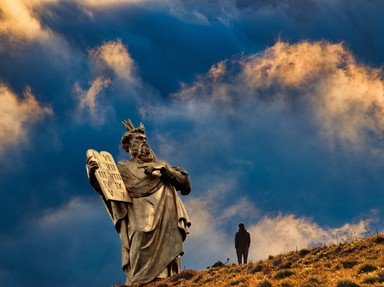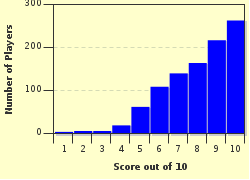Quiz Answer Key and Fun Facts
1. According to the Book of Exodus, where did Moses receive the Ten Commandments?
2. The Ten Commandments are recorded in two books of the Bible. The most famous location of them is in the book of Exodus; which is the other book that contains the Ten Commandments?
3. When Moses went up the mountain to get the Ten Commandments, it took him some time - a time of trial and tribulation for the Israelites. How long is it written that Moses was atop the mountain?
4. When Moses came down the mountain the first time with the Ten Commandments, he saw something that angered him. In a fit of pique, he broke the tablets. Then, Moses had to repeat the process and went up a second time to get the Ten Commandments. What did Moses see that angered him?
5. The Ten Commandments are known by what other name?
6. Of all the commandments, there is only one that has its reward written in directly. Which one is it?
7. Remembering the Sabbath Day is the third commandment, by most interpretations. According to Exodus 20:8-11, it is a day to be observed by only the Israelites, and it is designated as a day of prayer, repentance, and rest.
8. The Ten Commandments were inscribed upon two stone tablets. Who inscribed these tablets?
9. The Ten Commandments were an important relic and a powerful reminder of their depiction of the covenant between man and God. Where were they stored?
10. The very last commandment speaks of greed and envy, two very human emotions that are difficult to control. As per Exodus 20 (NKJV), which of the following things does the scripture not explicitly tell the reader to avoid coveting?
Source: Author
LeoDaVinci
This quiz was reviewed by FunTrivia editor
looney_tunes before going online.
Any errors found in FunTrivia content are routinely corrected through our feedback system.

